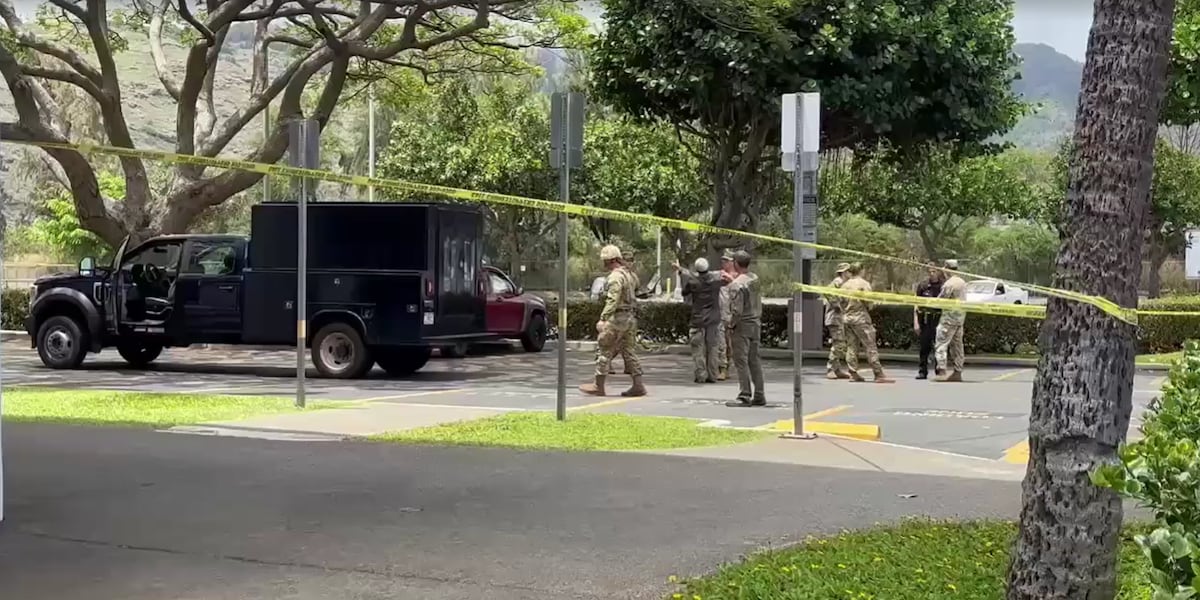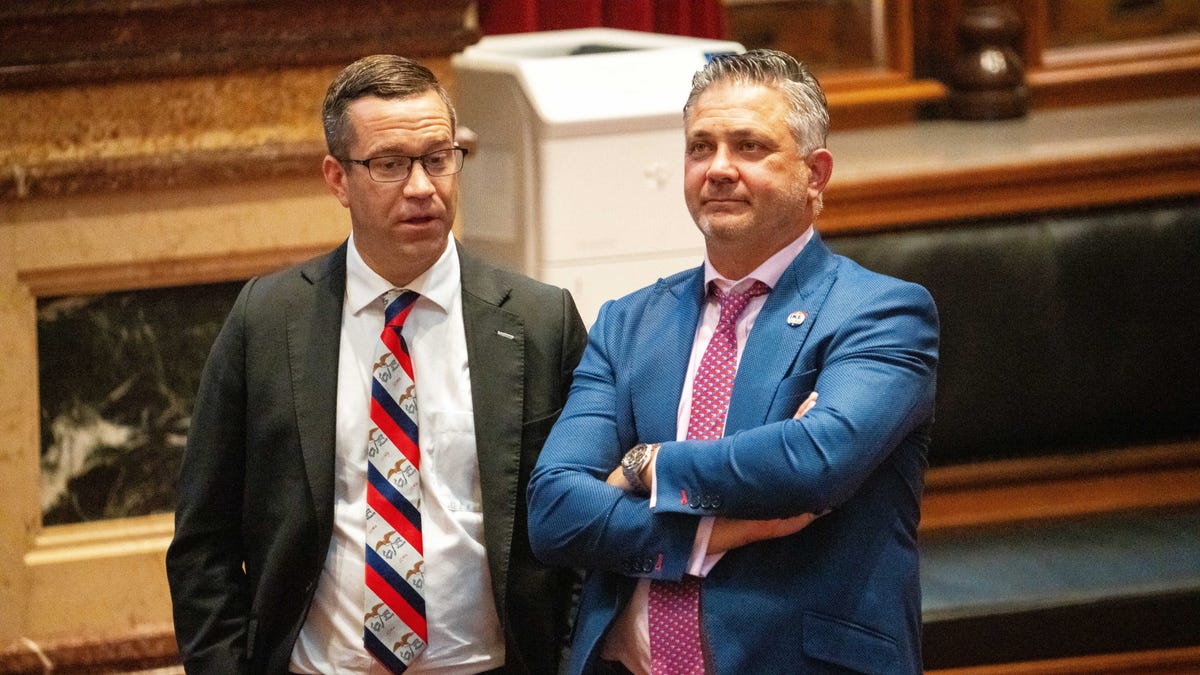World
US, China to work ‘intensively’ on climate issues in weeks ahead
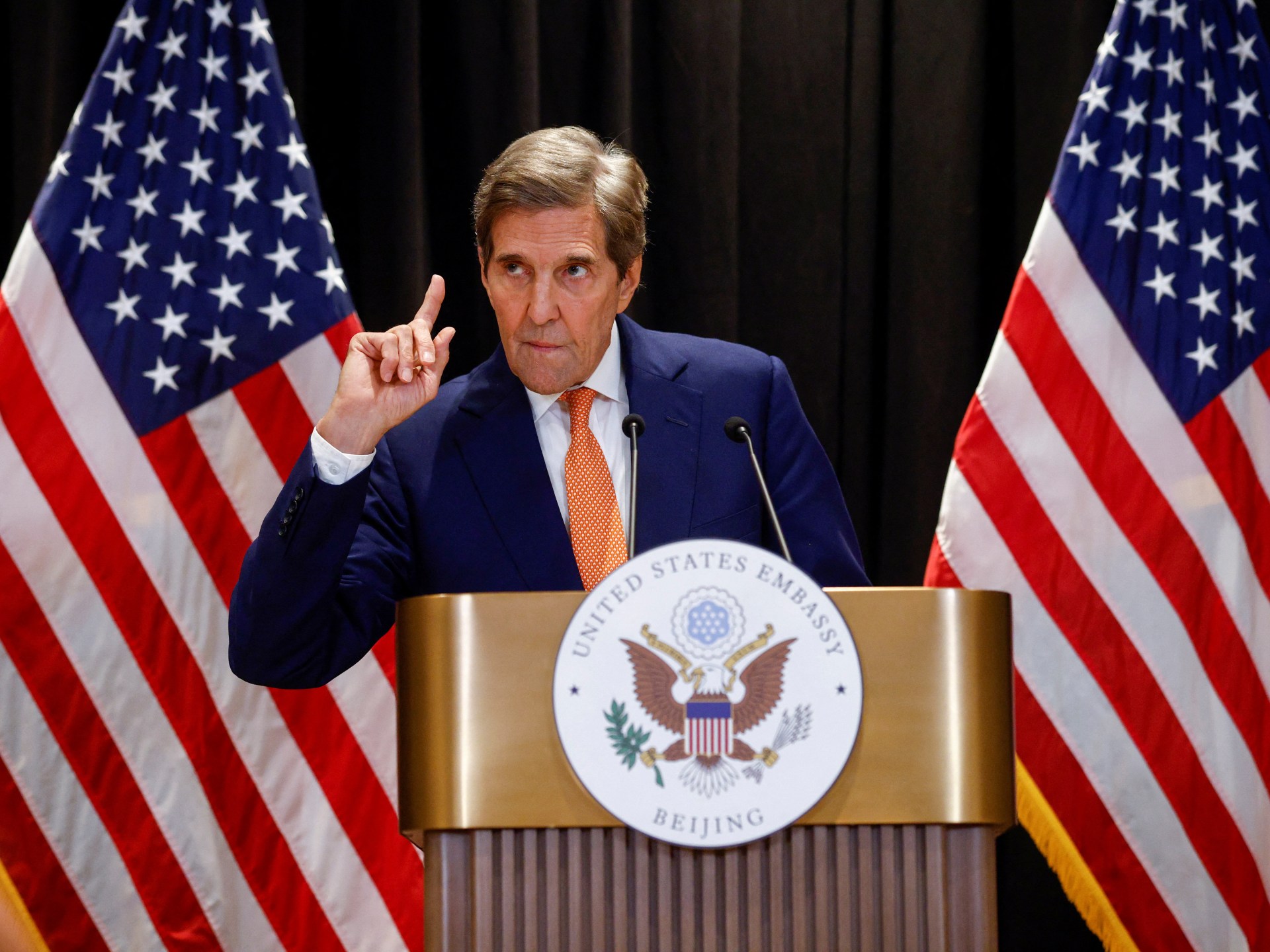
US climate envoy John Kerry says more work is needed to iron out agreements with China on the climate crisis, as Chinese Vice President Han Zheng said Beijing is willing to work with Washington on reducing global warming if its political demands are met.
The comments come after three days of talks in Beijing designed to rebuild trust between the world’s two biggest greenhouse gas emitters.
“We – our team and the United States administration – came to Beijing in order to unstick what has been stuck since almost last August,” Kerry told reporters late on Wednesday.
Climate talks were suspended last year following the visit of US House of Representatives Speaker Nancy Pelosi to Taiwan, an island over which China claims sovereignty.
“This is our first in-person meeting since that time, and we’re here to break new ground,” Kerry said.
He said “despite the hiatus of the last year” the two sides found many points of agreement during three days of cordial but frank discussions, and they planned to work “intensively” in the weeks ahead as they prepare for crucial COP28 climate talks in Dubai.
“We are already pinpointing the time for our next meeting and even the next one after that, recognising that we only have about four months before the COP, and we have to make up a certain amount of time for the period that this discussion has not been taking place,” Kerry said.
“This is not a one-off meeting,” he added, noting that the abatement of non-CO2 emissions like methane and the shift away from coal dependence were a crucial part of talks.
“We are trying to work with China to figure out the path ahead. China is working hard to try to develop some of those new technologies as well as deploy those renewables that will become the clean energy in the future. We look forward to working with China to accelerate that.”
Li Shuo, senior climate adviser with the environmental group Greenpeace in Beijing, said this week’s talks were “a complex rescue operation for the US-China climate dialogue” and said it could put relations on a “stronger footing”.
“Further engagements should help unlock more ambition in reducing coal consumption, cutting methane emissions, and beating a path towards a stronger outcome at COP28,” he said.
‘Very positive’
The official Xinhua News Agency quoted Zheng as telling Kerry that addressing climate change was “an important aspect of China-US cooperation,” but was predicated on mutual respect. He said it must proceed “on the basis of US attendance to core issues that concern both parties, fully engaging and exchanging ideas”.
Ties between the countries have hit a historic low amid other disputes as well, including over tariffs, access to technology, human rights, and China’s territorial claims in the South China Sea.
Contacts have only slowly been restored and China continues to refuse to restart dialogue between the People’s Liberation Army, the party’s military branch, and the US Department of Defense.
Kerry arrived in Beijing on Sunday as heatwaves scorched parts of Europe, Asia and the US, underscoring the need for governments to take drastic action to reduce carbon emissions, which contribute to global warming and extreme weather events.
He has held meetings with China’s top diplomat Wang Yi and Premier Li Qiang as well as veteran climate envoy Xie Zhenhua in a bid to rebuild trust between the two sides ahead of the COP28 climate talks.
“If we can come together over these next months leading up to COP28, which will be the most important since Paris, we will have an opportunity to be able to make a profound difference on this issue,” Kerry told Han.
Kerry told reporters earlier that his talks with Chinese officials this week have been constructive but complicated, with the two sides still dealing with political “externalities”.
“We’re just reconnecting,” he said. “We’re trying to re-establish the process we have worked on for years.”
“We’re trying to carve out a very clear path to the COP to be able to cooperate and work as we have wanted to with all the externalities,” Kerry said.
“The mood is very, very positive,” Kerry said ahead of Wednesday’s meetings. “We had a terrific dinner last night. We had a lot of back and forth. It’s really constructive.”
“We’re focused on the substance of what we can really work on and what we can make happen.”
No meeting has been announced with China’s paramount leader, President Xi Jinping, and Foreign Minister Qin Gang has been absent from public sight for three weeks.
China leads the world in producing and consuming coal and has proceeded with building new plants that add tonnes of carbon dioxide to the atmosphere annually, while also expanding the use of renewables such as solar and wind power.
China has pledged to level off carbon dioxide emissions by 2030 and become carbon neutral by 2060 as part of efforts to keep global temperatures from running out of control. The US and the European Union have urged China to adopt more ambitious reduction targets.
As in the US and Europe, northern China has seen record stretches of high temperatures over the course of Kerry’s visit that have threatened crops and prompted cities to open Cold War-era bomb shelters to help residents escape the heat.

World
Early human ancestors used their hands to both climb trees and make tools, new study shows
WASHINGTON (AP) — Our hands can reveal a lot about how a person has lived – and that’s true for early human ancestors, too.
Different activities such as climbing, grasping or hammering place stress on different parts of our fingers. In response to repeated stress, our bones tend to thicken in those areas.
To study how ancient humans used their hands, scientists used 3D scanning to measure and analyze the bone thickness of fingers.
They focused on the fossil hands of two early human ancestor species recovered from excavations in southern Africa, called Australopithecus sediba and Homo naledi. The individuals lived around 2 million years ago and around 300,000 years ago, respectively.
Both ancient human species showed signs of simultaneously using their hands to move around – such as by climbing trees – as well as to grasp and manipulate objects, a requirement to being able to make tools.
“They were likely walking on two feet and using their hands to manipulate objects or tools, but also spent time climbing and hanging,” perhaps on trees or cliffs, said study co-author and paleoanthropologist Samar Syeda of the American Museum of Natural History.
The research was published Wednesday in Science Advances.
The findings show there wasn’t a simple “evolution in hand function where you start off with more ‘ape-like’ and end up more ‘human-like,’” said Smithsonian paleoanthropologist Rick Potts, who was not involved in the study.
Complete fossil hands are relatively rare, but the specimens used in the study gave an opportunity to understand the relative forces on each finger, said Chatham University paleontologist Erin Marie Williams-Hatala, who was not involved in the study.
“Hands are one of the primary ways we engage with world around us,” she said.
___
The Associated Press Health and Science Department receives support from the Howard Hughes Medical Institute’s Science and Educational Media Group and the Robert Wood Johnson Foundation. The AP is solely responsible for all content.
World
UN revisits 'killer robot' regulations as concerns about AI-controlled weapons grow
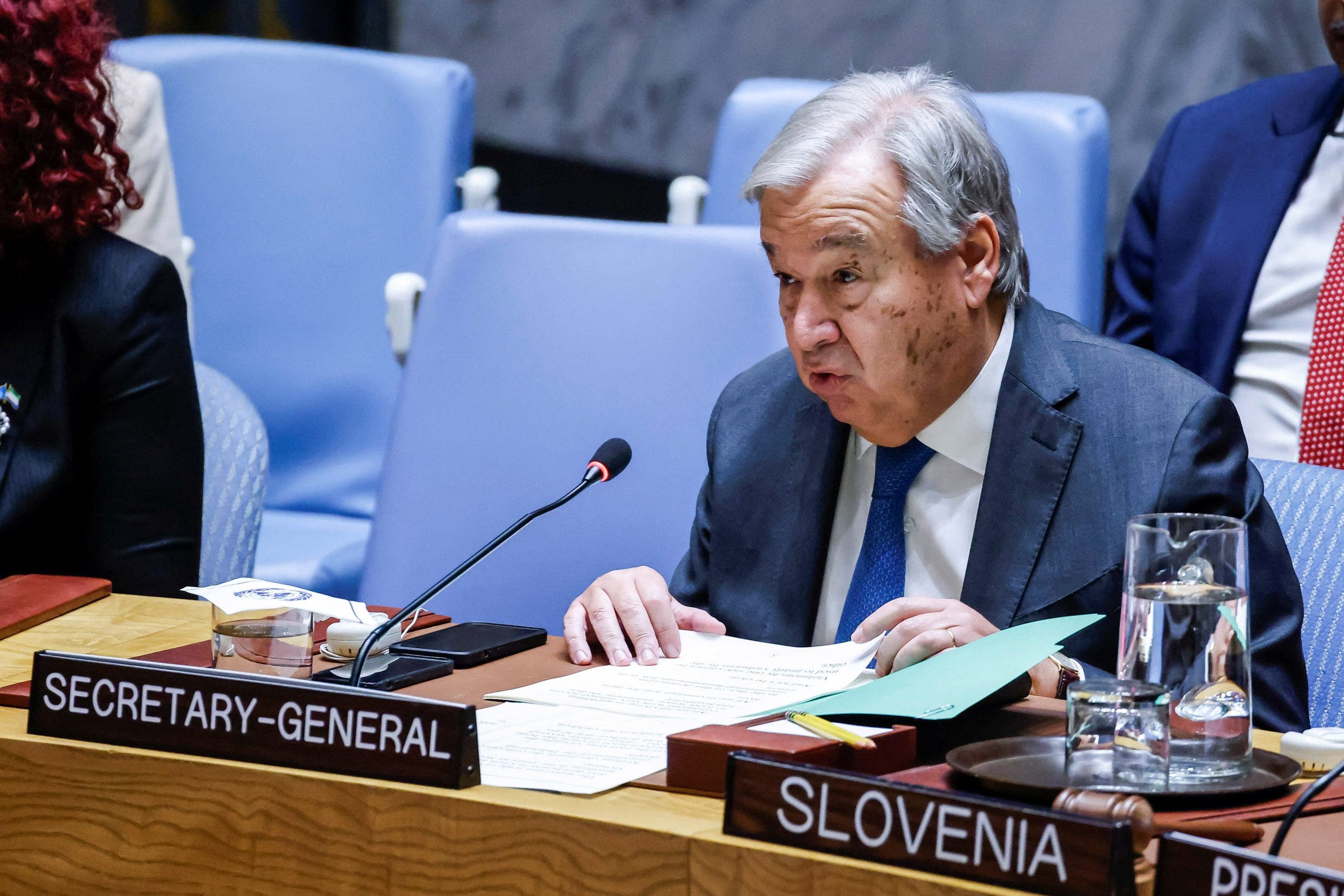
Several nations met at the United Nations (U.N.) on Monday to revisit a topic that the international body has been discussing for over a decade: the lack of regulations on lethal autonomous weapons systems (LAWS), often referred to as “killer robots.”
This latest round of talks comes as wars rage in Ukraine and Gaza.
While the meeting was held behind closed doors, U.N. Secretary-General António Guterres released a statement doubling down on his 2026 deadline for a legally binding solution to threats posed by LAWS.
“Machines that have the power and discretion to take human lives without human control are politically unacceptable, morally repugnant and should be banned by international law,” Guterres said in a statement. “We cannot delegate life-or-death decisions to machines,” he later added.
United Nations Secretary-General António Guterres speaks during a Security Council meeting during the 79th United Nations General Assembly at U.N. headquarters in New York City on Sept. 27, 2024. (Reuters/Eduardo Munoz)
FORMER TRUMP OFFICIAL SLAMS UN REFORM EFFORTS AS ‘EIGHT AND A HALF YEARS LATE’
International Committee of the Red Cross (ICRC) President Mirjana Spoljaric delivered a statement to nations participating in Monday’s meeting. Spoljaric expressed the ICRC’s support for efforts to regulate LAWS but warned that technology is evolving faster than regulations, making threats posed by the systems “more worrying.”
“Machines with the power and discretion to take lives without human involvement threaten to transform warfare in ways with grave humanitarian consequences. They also raise fundamental ethical and human rights concerns. All humanity will be affected,” Spoljaric said.
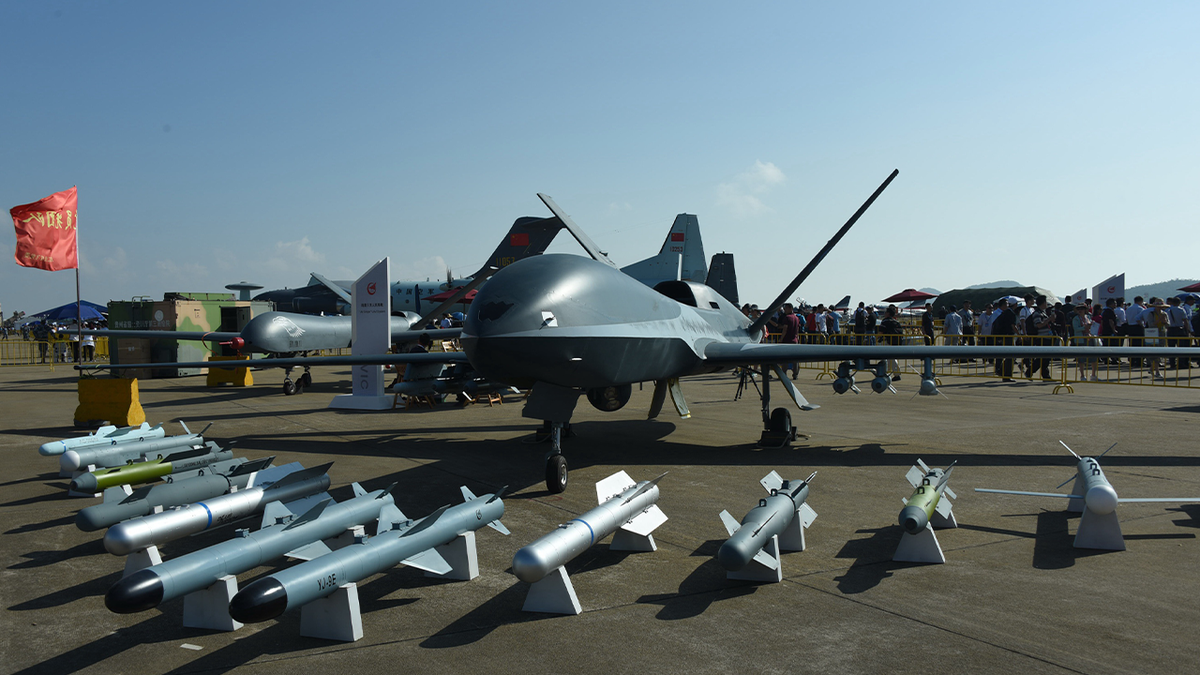
The picture shows the unmanned aerial vehicle of China captured at the Zhuhai Air Show on Nov. 7, 2018. (Costfoto/Future Publishing via Getty Images)
NUCLEAR WATCHDOG URGES ‘TRUST BUT VERIFY’ THAT IRAN ENGAGES IN GOOD-FAITH NEGOTIATIONS
Artificial intelligence is not necessarily a prerequisite for something to be considered an autonomous weapon, according to the U.N., as not all autonomous systems fully rely on AI. Some can use pre-programmed functions for certain tasks. However, AI “could further enable” autonomous weapons systems, the U.N. said.
Vice President of the Conservative Partnership Institute Rachel Bovard, however, says that while regulation of autonomous weapons is necessary, the U.S. needs to be cautious when it comes to the development of international law.
“AI is the wild west and every country is trying to determine the rules of the road. Some regulation will be imperative to preserving our humanity. When it comes to international law, however, the U.S. should proceed with caution,” Bovard told Fox News Digital. “As we have learned with everything from trade to health, subjecting our national sovereignty to international dictates can have lasting unintended consequences. If existing international law is sufficient at the moment, that is what should govern.”

Palestinian President Mahmoud Abbas addresses the 79th session of the United Nations General Assembly on Thursday, Sept. 26, 2024 at U.N. headquarters. (AP Photo/Frank Franklin II)
Countries in the Convention on Certain Conventional Weapons have been meeting since 2014 to discuss a possible full ban on LAWS that operate without human control and to regulate those with more human involvement, according to Reuters.
In 2023, more than 160 nations backed a U.N. resolution calling on countries across the globe to address the risks posed by LAWS. However, there is currently no international law specifically regulating LAWS.
World
Maldives parliament removes two Supreme Court judges

The Parliament of the Maldives has impeached two judges of the country’s Supreme Court, deepening a political crisis triggered by President Mohamed Muizzu’s push to amend the constitution and strip legislators of their seats if they switch political parties.
The Parliament, where the governing People’s National Congress holds a supermajority, voted on Wednesday to remove Justices Azmiralda Zahir and Mahaz Ali Zahir on allegations of abuse of power.
The vote, which passed 68 – 11, took place as dozens of opposition supporters rallied outside the Parliament House, calling for Muizzu’s resignation and an end to what they called the intimidation of judges.
The move comes more than two months after the judicial watchdog, dominated by Muizzu’s allies, suspended the two judges and their colleague, Justice Husnu al-Suood. At the time, the seven-member Supreme Court bench had been holding hearings into a petition challenging the anti-defection amendments.
Suood later resigned from the top court, accusing Muizzu and Attorney General Ahmed Usham of intimidating all the judges of the Supreme Court to secure a judgement in their favour.
The president and his lawyer deny the charges.
“I do not interfere with the judiciary,” Muizzu told reporters during a 14-hour news conference on May 3. “I have never done so. I do not control the [the judicial watchdog].”
The crisis has brought the Maldives’s Supreme Court to a near halt, pausing hearings in all ongoing cases, including on the constitutional amendments. It has also raised fears of renewed instability in the Indian Ocean honeymoon destination, which held its first multiparty elections in 2008, but has been roiled by political turmoil since, including a coup d’etat, disputed elections, and the killings and jailing of dissidents.
‘Attack on judiciary’
Azmiralda and Mahaz denounced their impeachment.
“This is an attack on the Maldivian judiciary. It is no ordinary matter to bring the Maldives Supreme Court to a halt,” Azmiralda said in a statement. “My hope is that one day, when the rule of law is established in this country … all of the various officials who took part in destroying the Supreme Court are held accountable.”
The case against the two judges stems from the arrest of Azmiralda’s husband, Ismail Latheef, during a police raid on a spa where he was receiving a massage in the Maldivian capital, Male, on December 4 of last year.
The incident happened two weeks after Muizzu ratified the anti-defection measures.
The controversial amendments stipulate that legislators elected on a political party ticket would lose their seat if they switch parties, or if they resign or are expelled from their party. The provisions effectively allow Muizzu to maintain his supermajority in Parliament, where his party controls 79 of the chamber’s 93 seats.
The president has argued they are necessary to “improve political stability”, but opponents say they would destroy the country’s system of checks and balances.
At the time of Latheef’s arrest, a former member of parliament had filed a petition at the Supreme Court challenging the legality of the amendments, but the bench had yet to decide to take up the case.
Latheef was held overnight for more than 12 hours, on charges of soliciting a prostitute, but was released by a judge at the Criminal Court. In the ruling, the judge noted that the masseuse treating Latheef was fully clothed at the time of the raid, and that the room they were in was unlocked.
The prosecutor’s office later shelved the case against Latheef, citing a lack of evidence.
But after the Supreme Court began reviewing the constitutional amendments in February, the watchdog Judicial Services Commission (JSC) took up a separate case against Azmiralda and Mahaz, claiming the two judges had unlawfully lobbied lower court judges to secure Latheef’s release.
The JSC recommended that the Parliament impeach them last month.
‘No ulterior motives’
The judges have denied the charges, with lawyers for Azmiralda saying that the case was “manufactured by top government officials to suspend” them “in order to influence the outcome of the constitutional case before the Supreme Court”.
Usham, the Attorney General, has told Al Jazeera that the government “categorically denies these allegations”.
“There is absolutely no truth to the claim that the executive branch had any hand in the JSC’s [the judicial watchdog’s] decision,” he wrote in an email. “The suspension was pursuant to law and… any suggestion of ulterior motives is firmly rejected by the Government.”
The case, however, has drawn criticism from the United Nations and rights groups.
Margaret Satterthwaite, the UN’s special rapporteur on the independence of judges and lawyers, expressed grave concern last month over the action against the three judges, saying they appear to be aimed at undermining the Supreme Court’s judicial review of the anti-defection measures.
“The disciplinary proceedings brought against three of the Supreme Court’s Justices appear to violate the principle that judges can only be dismissed on serious grounds of misconduct or incompetence and in accordance with fair procedures guaranteeing objectivity and impartiality as provided for by the Constitution or the law,” she wrote. “The pressure of suspensions, disciplinary proceedings and investigations may amount to an interference in the independence of this institution.”
-

 Austin, TX4 days ago
Austin, TX4 days agoBest Austin Salads – 15 Food Places For Good Greens!
-

 Education1 week ago
Education1 week agoIn Alabama Commencement Speech, Trump Mixes In the Political
-

 Technology1 week ago
Technology1 week agoBe careful what you read about an Elden Ring movie
-

 Culture1 week ago
Culture1 week agoPulitzer Prizes 2025: A Guide to the Winning Books and Finalists
-

 Technology6 days ago
Technology6 days agoNetflix is removing Black Mirror: Bandersnatch
-

 Education1 week ago
Education1 week agoUniversity of Michigan President, Santa Ono, Set to Lead University of Florida
-

 World6 days ago
World6 days agoThe Take: Can India and Pakistan avoid a fourth war over Kashmir?
-

 News6 days ago
News6 days agoReincarnated by A.I., Arizona Man Forgives His Killer at Sentencing

